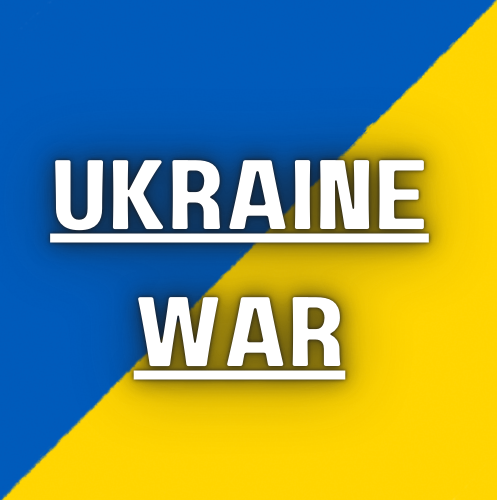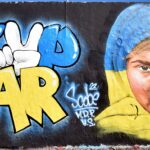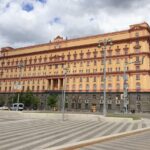Zelensky informations:
Full Name: Volodymyr Oleksandrovych Zelensky
Date of Birth: January 25, 1978
Place of Birth: Kryvyi Rih, Ukrainian SSR, Soviet Union (now Ukraine)
Nationality: Ukrainian
Occupation: Politician, former actor, comedian, and television producer
Current Position: President of Ukraine (since May 20, 2019)
Political Party: Servant of the People
Early Life and Education:
Volodymyr Zelensky was born in Kryvyi Rih, a Russian-speaking industrial city in southeastern Ukraine. His family was of Jewish heritage, and his father, Oleksandr Zelensky, is a professor of computer science and the head of the Department of Cybernetics at Kryvyi Rih State University. His mother, Rymma Zelenska, was an engineer.
Zelensky showed an early interest in performing arts but initially pursued a more traditional academic route. He studied law at the Kryvyi Rih Institute of Economics, part of Kyiv National Economic University, and earned a degree in law. However, he did not pursue a legal career. Instead, his passion for entertainment led him to a very different path.
Career in Entertainment:
Zelensky’s rise to fame came not in politics but through comedy and entertainment. He co-founded the comedy troupe Kvartal 95 in the early 2000s, which became hugely popular in Ukraine and other post-Soviet countries. Kvartal 95’s sketches often satirized political and social issues, with Zelensky emerging as a charismatic and sharp-witted performer.
His most famous role came in the television series “Servant of the People” (2015–2019), where he played the fictional character Vasyl Holoborodko, a humble high school teacher who unexpectedly becomes the president of Ukraine after a viral video shows him ranting against government corruption. The show was a massive success, and Zelensky’s portrayal of a moral, anti-corruption leader resonated deeply with the Ukrainian public.
Political Career:
In a surprising turn of events, Zelensky’s television role soon blurred into reality. On December 31, 2018, he announced his candidacy for the 2019 Ukrainian presidential election. Running under the banner of a newly formed political party called Servant of the People, named after his TV show, Zelensky positioned himself as an outsider to Ukraine’s corrupt political establishment, promising reforms, transparency, and an end to oligarchic influence.
Zelensky’s campaign was unconventional, relying heavily on social media and modern communication channels to connect with younger voters. He presented himself as a fresh face in politics, standing in contrast to the incumbent, Petro Poroshenko, who was associated with Ukraine’s old political elite. His platform focused on anti-corruption measures, improving the judicial system, and promoting peace in the Donbas region, where Ukraine was fighting a conflict with Russian-backed separatists.
On April 21, 2019, Zelensky won a landslide victory in the presidential election, securing over 73% of the vote. His overwhelming support was driven by his image as a reformer and his ability to connect with ordinary Ukrainians.
Presidency:
Reforms and Challenges:
Upon taking office on May 20, 2019, Zelensky faced significant challenges. He promised to reform Ukraine’s corrupt political system, overhaul the judiciary, and improve the economy. Early in his presidency, he passed a number of important reforms, including changes to land ownership laws and efforts to tackle corruption.
However, his tenure has not been without controversy. Zelensky struggled with maintaining his image as a political outsider while navigating Ukraine’s complex political environment. His government faced criticisms of being slow to enact promised reforms, and his ties to Igor Kolomoisky, a controversial oligarch and the owner of the TV channel that aired “Servant of the People,” raised concerns about his independence from powerful business interests.
Relationship with Russia and Peace Efforts:
A key challenge for Zelensky has been managing Ukraine’s complex relationship with Russia, particularly the ongoing war in the Donbas region. When he assumed office, Zelensky pledged to negotiate peace with Russia, and he engaged in several rounds of talks, including Normandy Format discussions involving Russia, Germany, and France.
Despite early signs of progress, such as prisoner exchanges and talks about ceasefires, tensions remained high, and Russia’s continued support for separatists in Donetsk and Luhansk made lasting peace elusive.
The 2022 Russian Invasion:
Zelensky’s presidency took a dramatic turn with the full-scale Russian invasion of Ukraine on February 24, 2022. In the lead-up to the invasion, Russia amassed troops on the Ukrainian border, but Zelensky attempted to de-escalate the situation through diplomacy, while also strengthening Ukraine’s military preparedness.
When the invasion began, many expected Zelensky to flee the country or seek refuge abroad. However, he famously refused to leave Kyiv, declaring that he would stay and fight alongside his people. His defiant leadership and emotional appeals to the international community galvanized global support for Ukraine. In one of his most iconic moments, he said, “I need ammunition, not a ride,” rejecting an offer to be evacuated by the United States.
Zelensky’s speeches to world leaders, often delivered via video link, have become crucial in mobilizing international aid. His ability to appeal to Western powers for weapons, financial aid, and sanctions against Russia has played a major role in sustaining Ukraine’s resistance.
Global Recognition and Leadership:
Zelensky’s leadership during the war transformed his global image. He was hailed as a symbol of democratic resistance against authoritarianism. His speeches to the U.S. Congress, European Parliament, and other international bodies helped galvanize support for Ukraine, leading to billions of dollars in military and humanitarian aid, as well as sanctions against Russia.
His transformation from a comedian and political outsider to a wartime leader has been one of the defining narratives of the 21st century. While his presidency before the war had been criticized for slow reforms, his steadfastness during the invasion won him admiration across the globe.
Personal Life:
Volodymyr Zelensky is married to Olena Zelenska, a former screenwriter and now an active public figure advocating for social issues. The couple has two children: a daughter, Oleksandra (born in 2004), and a son, Kyrylo (born in 2013).
Despite the ongoing war, Zelensky remains in Ukraine, leading the nation through its most difficult period since independence. His ability to inspire both Ukrainians and international allies has made him a pivotal figure in the fight for Ukraine’s sovereignty.
Legacy:
Volodymyr Zelensky’s legacy is still being written, but his role in leading Ukraine through the Russian invasion will define much of it. He has become a symbol of resistance, democracy, and the struggle for national sovereignty. Whether Ukraine emerges victorious or in a negotiated settlement, Zelensky’s leadership during the war has permanently altered Ukraine’s political trajectory, solidified its pro-Western stance, and inspired global admiration.
As a politician, his story is one of unlikely rise, from comedian to national leader, navigating immense challenges and becoming a global symbol of defiance in the face of aggression.
Ukraine war understanding © 2024 by Naccache Louann is licensed under Creative Commons Attribution-NonCommercial-NoDerivatives 4.0 International



